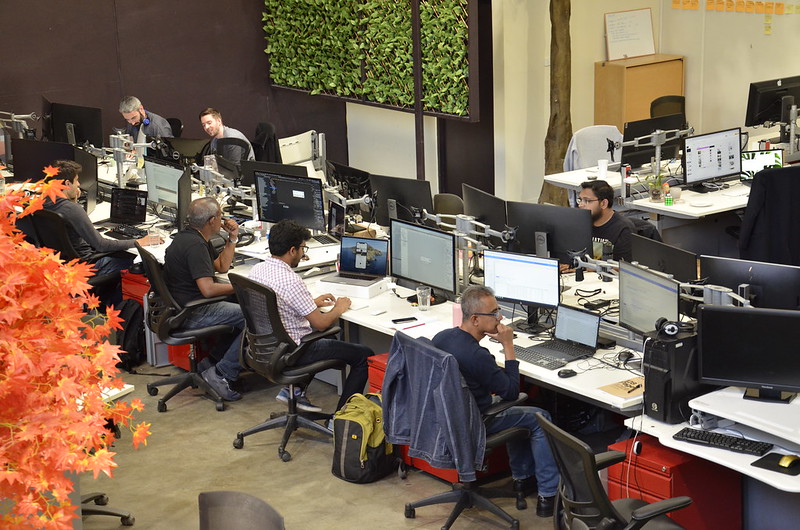10 things businesses need to know about economic recessions

IN THIS STORY
If Warren Buffet is right (and he usually is), then we’re overdue for a downturn.
Warren’s a pretty good bellwether for the rollercoaster we call the economy – when he cashes up, you know he’s getting ready to buy cheap businesses. I’ve just checked – he has more money in the bank than at the same time before the GFC. At last count around US$112 billion.
That is a vast amount of money. Most small countries will be happy to have as their GDP.
The Australian reserve is predicting rate decreases for the balance of 2019, hoping that this will soften the market drop. The net will be a tough period until the upturn happens, probably later in 2020.
It’s time to tighten our belts, focus on what’s important.
For scale-up businesses, money is perpetually in short supply, and there are always more things to fund than the resources available. When there’s a downturn, cash becomes a scares commodity – customers stretch out payment terms, deals get delayed, suppliers demand payment on time – it all becomes very stressful.
Here are ten ideas to help you weather the coming storm.
1. Sharpen up your payment terms
Guaranteed your customers will have the same problems you do with their clients delaying bills. Get in first and become the squeaking wheel. Change the standard invoicing terms to add a discount for on-time and charges for late payments – then stick to it. Automate invoice reminders (most finance systems offer this), but make it personal. It’s easy to ignore a ‘bot’, harder when people think it’s you.
2.Get closer to your best customers
We often spend too much time looking for new business when the best opportunities can be right in front of us. In a downturn, your our best customers will be looking for ways to squeeze more from their budgets. An opportunity where you can have an edge. Think about it. When money is plentiful, your customers will ignore inefficient suppliers, but when the squeeze is on, it can be your moment to offer something more for less.
3.Cut the bad ones
On the flip side, some customers will drain your time and resources. When things get tough for them, they will lean on you for free stuff. Stop it now. Remember, B-grade customers are a ‘B’ for a reason. An old mentor once gave me this good advice, and I’ve always stuck to it. “How do you know when a sponge is dry? It stops dripping when squeezed”.
Stop drip feeding free stuff to customers who are bad payers.
4.Get creative with significant debts
In 2012 just after the GFC, we were in a spot of bother with our management consultancy. With over two months the rent due to our landlord, wages to pay and customers not paying us, we didn’t have many options. So we bought our building. It’s a long story, but we just got creative with a significant bill and flipped the conversation from debt recovery into acquisition
5.Spend more on marketing in the right places
At LaunchPad, three businesses that are doing very well, focus on marketing analytics. Their customers are looking to trim marketing budgets and do more with less – you should cut too. Buy a copy of Gorilla Marketing and reread the Idea Virus by Seth Godin. If you haven’t already, sharpen up your marketing and sales data collection. Cut spending on things that don’t give a solid return, spent (a lot) more on those that do.
6.Get creative in structuring deals
Revisit how you structure risk sharing for products and services you sell. Make it easier for your customers to start small with you and scale their investment. Stretch yourself and take on a little more risk with a higher upside. Just make sure you can deliver.
7.Downsize your overheads
While it’s nice to have your own exclusive office space, it’s probably not adding much to the bottom line. You may have signed up for a long term lease when you thought you’d grow into the building. Trim back spending on the nice to have items. Check out co-working spaces that offer all-inclusive prices. Their economies of scale give them higher buying power for those things you can’t afford like meeting rooms, high-bandwidth internet, and a receptionist.
8.Plugin to education
Invest in sharpening the skills of your team. Look for ways to increase their productivity. They’ll appreciate you investing in their knowledge, and you’ll get the benefit of higher engagement. Use the upskilling to springboard new ideas and processes. If you’re in a shared workspace, take the opportunity to tap into the community resources like ‘lunch and learns’.
9.Take advice from peers
Seek out other founders and business owners and lean on their experiences. Look for peer-to-peer mentoring networks. One hundred fifty years of economic history tell us that there are boom-bust cycles every 5 to 7 years. It’s surprising how much experience your peers will be willing to share about previous economic cycles. When times are tough, and you’re stressed, it’s great to have a sounding board to work through issues.
10.Turn fixed into variable overheads
Avoid locking up cash to get a future return. In a downturn, things get cheaper, don’t make the mistake of spending precious cash reserves. Look for ways to turn fixed into variable costs, like desk space or electricity costs. Find ways to scale your costs as revenue comes in, even if the unit price is higher than one-off payments. Co-working spaces are a brilliant way to minimise fixed overheads, allowing you to pay as you go for services.
One last thing…
Above all else, remember that after a downturn, there is always a recovery. Invest in those things that will genuinely make a difference to your customers. When the upturn comes, you’ll have the jump on your competition.

